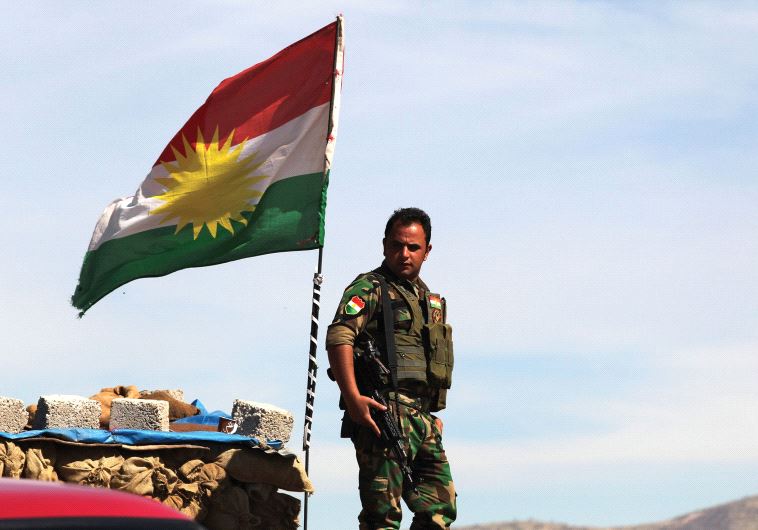Is the Iranian regime facing a Kurdish uprising?
Kurds are divided among the states of Iraq, Turkey, Syria and Iran. East Kurdistan, or Rojhelat as Kurds call it, is the Kurdish area in Iran.
 A KURDISH peshmerga soldier stands at a lookout near Bashiqa in northern IraqUpdated:
A KURDISH peshmerga soldier stands at a lookout near Bashiqa in northern IraqUpdated: